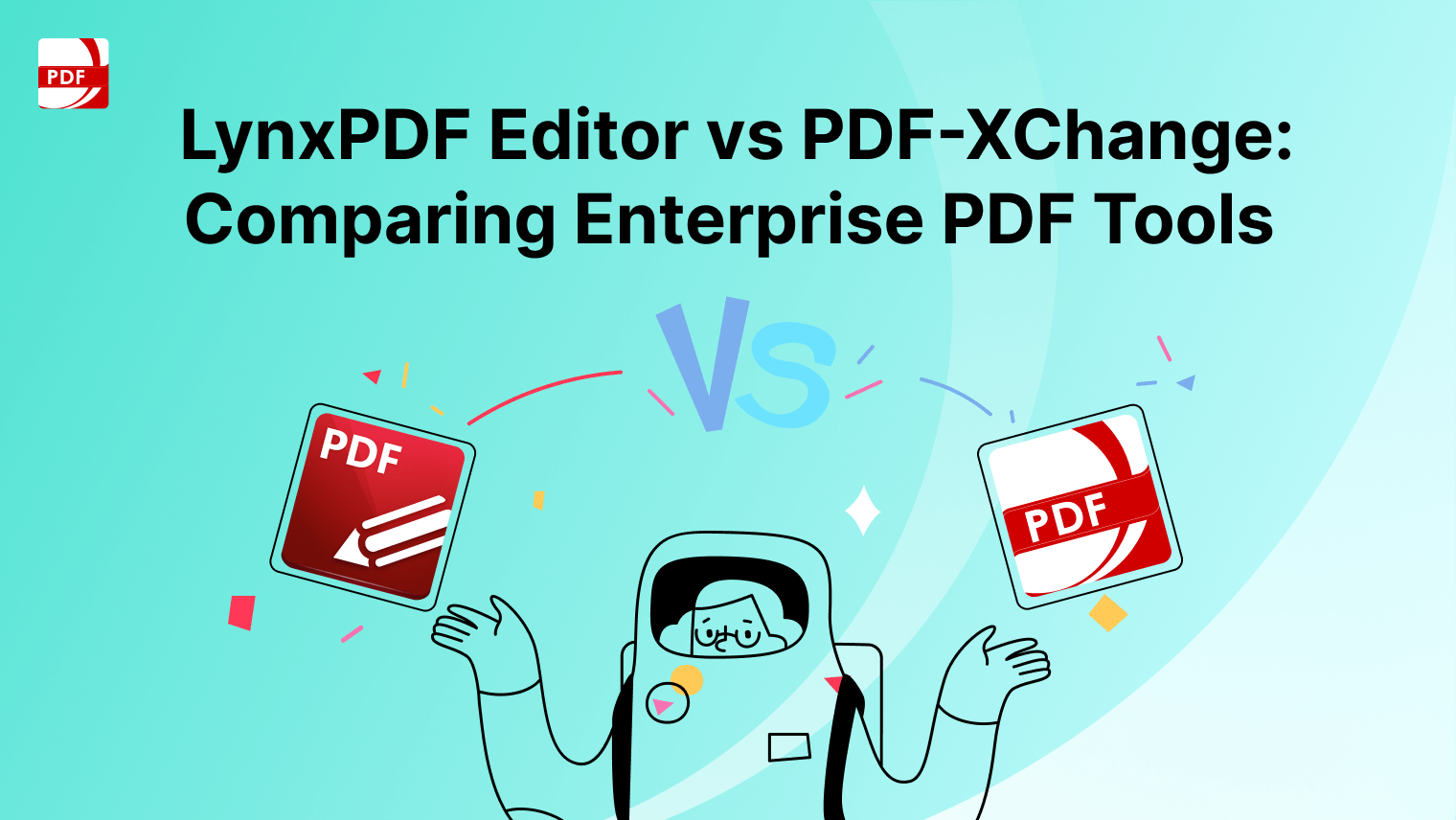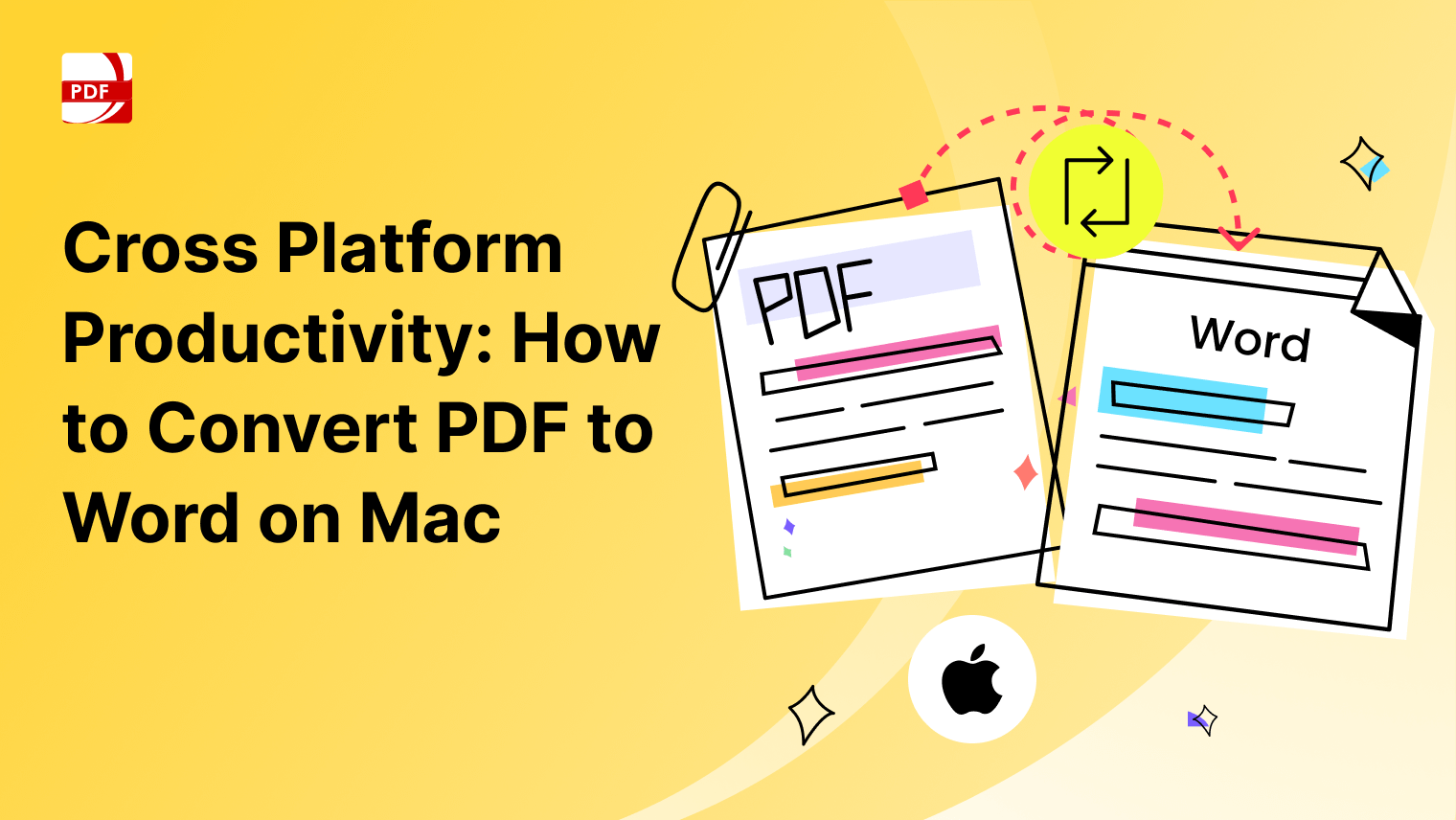Whether you're a student, professional, or avid reader, mastering PDF reading and annotation techniques can significantly enhance your productivity and comprehension. Make comments, create markups, and highlight text quickly and easily.
Tips for Reading and Annotating PDF Files
Here are some quick tips for choosing and using PDF annotation tools for thorough comprehension of the document.
-
Choose the Right Tools:
When it comes to reading and annotating PDFs, having the right tools at your disposal can make a world of difference. Popular PDF readers like Adobe Acrobat Reader, Foxit Reader, and PDF-XChange Editor offer a wide range of features for viewing, annotating, and manipulating PDF documents. Additionally, dedicated annotation tools such as Kami and Notability provide advanced annotation functionalities tailored to specific needs, such as collaborative annotation or handwritten notes. -
Utilize Keyboard Shortcuts:
Learning keyboard shortcuts for common PDF actions can significantly speed up your workflow. Most PDF readers offer a variety of keyboard shortcuts for tasks like zooming in/out, navigating pages, highlighting text, and adding annotations. Take some time to familiarize yourself with these shortcuts, and you'll find yourself zipping through documents with ease. -
Customize Your Workspace:
Many PDF readers allow you to customize your workspace to suit your preferences. You can adjust settings such as layout, toolbars, and panel placement to create a personalized reading and annotation environment that maximizes your efficiency. Experiment with different configurations to find what works best for you. -
Take Advantage of Annotation Tools:
Annotations are powerful tools for marking up PDFs with highlights, comments, and other visual cues. Whether you're studying a textbook, reviewing a contract, or collaborating on a project, annotations can help you organize information, ask questions, and provide feedback. Explore the various annotation tools available in your PDF reader and experiment with different techniques to find what suits your needs. -
Sync Across Devices:
If you often switch between devices while reading and annotating PDFs, consider using a PDF reader that offers synchronization capabilities. Cloud-based solutions like Adobe Document Cloud, Dropbox, and Google Drive allow you to access your PDFs and annotations from any device with an internet connection, ensuring seamless continuity across platforms. -
Stay Organized:
With the abundance of digital documents we encounter, staying organized is key to efficient PDF management. Create a logical folder structure for storing your PDFs, and consider using naming conventions or tagging systems to easily locate files. Many PDF readers also offer features for creating document collections, bookmarks, and searchable indexes to further streamline organization. -
Practice Active Reading Techniques:
Finally, adopt active reading techniques to enhance your comprehension and retention while reading PDFs. This may include strategies such as summarizing key points, asking questions, making connections to prior knowledge, and engaging in critical analysis. By actively engaging with the content, you'll not only improve your understanding but also make your annotations more meaningful and effective.
How to Annotate PDFs on Windows
Follow our step by step guide to employ our advanced features for annotating PDFs on your Windows operating system.
Step 1: Open Your PDF Document
Tap on the "Tools" icon on the main menu bar.
Image Source: PDF Reader Pro
Step 2: Use Our PDF Annotator Tool
Select the tool you want to use, from a sticky note to a highlighter.
Image Source: PDF Reader Pro
Step 3: Edit Properties
Change the color of the highlights and markups as needed.
Image Source: PDF Reader Pro
How to Annotate PDFs on Mac
Use our PDF tools to make comments and highlight your original document using PDF Reader Pro for Mac.
Step 1: Open the PDF for Annotation
Select the "Tools" feature from the menu.
Image Source: PDF Reader Pro
Step 2: Select Your Annotation Tool
Highlight, comment, or mark up your document.
Image Source: PDF Reader Pro
Step 3: Alter Your Digital Text Annotations
Change the annotation type and color with the PDF content properties.
Image Source: PDF Reader Pro
You can also explore our advice on how to import and export annotations in PDFs.
Best Practices: Optimizing PDF Annotation
Follow some of our best practices for adding comments to PDF files using our all-in-one PDF software:
1. Standardize File Formats:
To ensure compatibility and consistency across teams, use widely supported file formats like PDF for document sharing and annotation. PDFs maintain formatting integrity across different devices and platforms, making them ideal for collaborative annotation tasks.
2. Utilize Advanced Annotation Tools:
Take advantage of advanced annotation tools available in PDF readers such as Foxit Reader or PDF Annotator. These tools offer a plethora of features, including custom stamps, electronic signatures, and freehand drawing tools, empowering users to create rich and interactive annotations.
3. Foster Seamless Collaboration:
Facilitate seamless collaboration among remote teams by leveraging PDF annotation software with robust collaboration features. Look for tools that enable real-time annotation, contextual feedback, and version control to enhance communication and productivity across distributed teams.
4. Establish Effective Document Review Processes:
Implement structured document review processes to streamline feedback collection and integration. Assign roles such as project managers or reference managers to oversee the review process and ensure that annotations are addressed promptly and comprehensively.
5. Incorporate Form Filling Capabilities:
Choose PDF annotation tools that support form filling functionalities, especially for documents requiring input or completion. This feature simplifies data collection, form submission, and document processing, enhancing efficiency in workflows involving forms and surveys.
6. Customize Annotation Options:
Customize annotation options to suit the specific requirements of your team or project. Configure preferences such as preferred colors, annotation styles, and default tools to create a personalized annotation environment that aligns with your team's workflow and preferences.
7. Integrate Mobile Devices:
Embrace mobile-friendly PDF annotation solutions to accommodate on-the-go collaboration and document access. Ensure compatibility with mobile devices and provide guidance on mobile annotation best practices to enable flexibility and productivity for team members working remotely or in the field.
8. Preserve Document Integrity:
Prioritize document integrity and version control to prevent loss of data or confusion during the annotation process. Choose PDF annotation tools that offer robust file management features, automatic saving, and version tracking to safeguard against accidental data loss or overwrite.
You can also check our recommendations on using PDF markup erasure.
FAQ: PDF Annotation Features
Have more questions about using sticky notes and other PDF annotation tools? Find the answers to your concerns below.
1. What are Annotation Features?
Annotation features refer to tools and functionalities within PDF readers or annotation software that allow users to mark up, highlight, comment on, and otherwise interact with digital documents. These features are essential for adding context, feedback, and insights to PDFs.
2. What types of Annotation Functions are available?
Annotation functions encompass a wide range of tools and capabilities, including highlighting text, drawing shapes, adding comments, attaching files, inserting stamps, creating digital signatures, and more. These functions enable users to customize their annotations to suit various needs and preferences.
3. What is the Range of Annotation Tools typically offered?
PDF readers and annotation software often provide a diverse selection of annotation tools, such as highlighters, text boxes, sticky notes, shapes, drawing tools, stamps, and signature tools. This range allows users to choose the most appropriate tool for each annotation task.
4. How can Annotation Features facilitate Document Management?
Annotation features streamline document management by allowing users to add metadata, categorize annotations, create bookmarks, generate summaries, and collaborate with others effectively. These features enhance organization, accessibility, and productivity in handling digital documents.
5. Can Annotation Features support Document Review Processes?
Yes, annotation features are invaluable for document review processes, enabling users to provide feedback, track changes, resolve comments, and iterate on revisions collaboratively. Features like track changes, version control, and commenting tools facilitate efficient and transparent document review workflows.
6. Which PDF readers offer Advanced Annotation Tools?
PDF readers like Foxit Reader provide advanced annotation tools such as advanced drawing tools, customizable stamps, form filling options, and support for digital signatures. These tools cater to users with complex annotation needs, such as professionals in legal, creative, or technical fields.
7. How does Seamless Collaboration enhance Annotation Capabilities?
Seamless collaboration features in PDF readers enable multiple users to annotate documents simultaneously, exchange comments in real-time, and track each other's annotations. This fosters efficient communication, improves teamwork, and accelerates decision-making processes, especially in remote or distributed teams.
8. What role do Annotation Features play in Effective PDF Annotation?
Annotation features empower users to annotate PDFs with precision, clarity, and creativity, thereby enhancing comprehension, analysis, and communication. By leveraging annotation features effectively, users can extract insights, convey feedback, and engage with digital documents more meaningfully.
By leveraging the right tools, optimizing your workflow, and practicing active reading techniques, you can unlock new levels of productivity and insight in your document management endeavors. So, the next time you encounter a PDF, approach it with confidence, knowing that you have the tools and techniques to make the most out of your reading and annotation experience.



